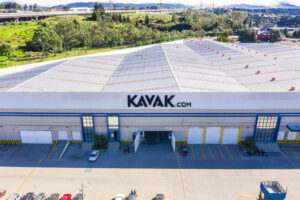
Por Mariana López
April 27, 2020
[wd_hustle id=”InArticleOptin” type=”embedded”/]
Contxto – UNICEF has been dabbing and investing in blockchain technology since 2016. And recently, UNICEF’s Innovation Fund saw its first blockchain cohort from emerging markets graduate from its accelerator program. Among the six alumni, three were from Latin America: Atix Labs (Argentina), OS City (Mexico), and Prescrypto (Mexico).
And these startups recently shared what their year-long experience within the accelerator taught them, the projects they’ve taken up during that time, as well as what’s to come.
This startup created an open-source blockchain platform that connects small and medium-sized enterprises (SMEs) with investors across the globe.
This platform, dubbed “Circle of Angels,” allows for investing and financial opportunities through smart contracts for enterprises with a social impact. To add accountability to the matter, investors can see where their funds are used by the budding companies.
During the acceleration program, Atix Labs worked with three businesses and rallied US$115,000 in their favor. What’s more, one of these companies managed to pay back a US$40,000 loan to its investors. It also worked with RSK, a Gibraltar-based smart contract platform developer, and secured follow-on funding.
When it comes to future plans, Atix Labs is looking for parties that want to improve the way they measure their projects’ impact. Likewise, it will use the funding from RSK for tech development.
Digital certificates can be used in multiple ways: in education to grant validated diplomas and among governments for issuance of permits, for example.
In the private sector, food production also values certificates as they give reassurance as to the quality of a product or its origin. Nonetheless, access to the digital tools to produce these certificates isn’t normally available to everyone.
As a result, OS City built an open-source blockchain platform that lets anyone create a template. That way, they can then issue their own digital certificates. For example, if a Mexican artisan wants to issue a certificate validating the authenticity, quality, and origin of a piece of pottery they made, they can use OS City’s platform.
During its participation in UNICEF’s program OS City wanted to put its platform to the test. To that end, it deployed it in as many cases and industries as possible. Correspondingly, they worked with institutions in four Latam countries. And in various sectors too: education, supply chain, government, and sustainability.
The OS City even raised follow-on funding through Ethereum Classic Labs. The startup is now considering the use of blockchain for digital identities.
Clinical data is sensitive information that can be mishandled or lost when shared from one doctor to another. What’s worse, it can fall into the wrong hands or be tampered with to the detriment of the patient and healthcare as a whole.
In light of this problem, Prescrypto developed “RexChain,” a blockchain network where doctors can import or export clinical data for prescriptions in a private and confidential way. And because physicians have no time to tamper with sophisticated programs, the startup developed interfaces that were user-friendly.
Ultimately, 2,500 doctors have signed up on the platform and 12,000 new medical prescriptions have been registered through the platform per month.
And according to a post by UNICEF, Prescrypto even landed a deal with a pharmaceutical company. Consequently, it’s working to create a customized prescription tool that’s set for launch next July.
Related articles: Tech and startups from Mexico!
-ML

Por Yanin Alfaro
February 17, 2026

Por Israel Pantaleón
February 17, 2026

Por Stiven Cartagena
February 13, 2026